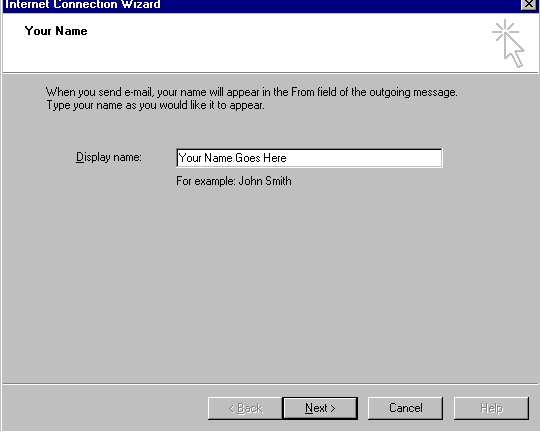
| Configuring OutlookŪ 2000 Tutorials |
Configuring OutlookŪ 2000
OutlookŪ 2000 is an e-mail application that is an upgrade of Outlook 97.
To add an e-mail account to OutlookŪ:
Start Outlook.
Choose Accounts from the Tools menu. The Internet Accounts window will open.
Click the Mail tab. This will show you any e-mail accounts that are currently set up in Outlook.
Click the Add button. A menu will pop up; choose Mail.
The Internet Connection wizard will appear to guide you through a series of configuration steps for the e-mail address you want to add.

Enter your name as you want it to appear in e-mails. Click Next.
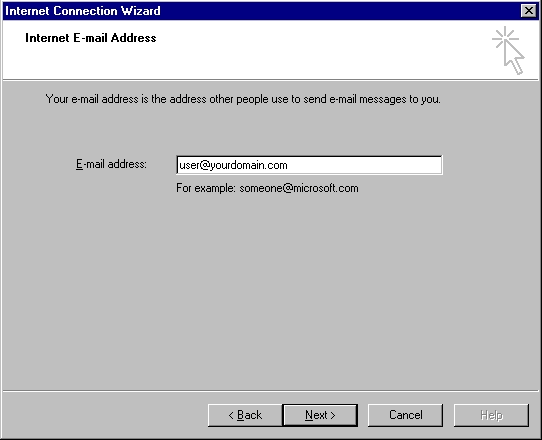
Enter the e-mail address you want to add, in the form of username@domain.com and then click Next.
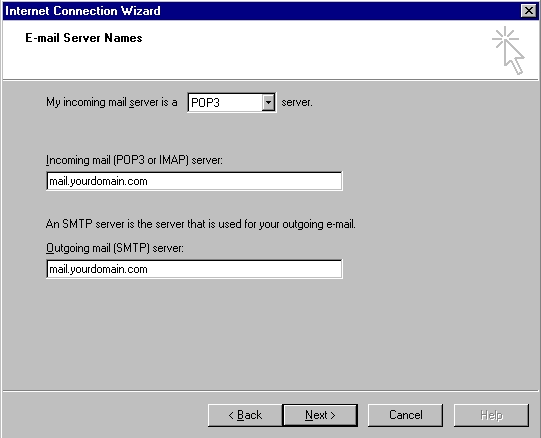
My incoming mail server is a: POP3 Incoming mail (POP3 or IMAP) server: mail.[yourdomain] (ex. if your domain is yourdomain.net, enter mail.yourdomain.net)
Outgoing mail (SMTP) server: mail.[yourdomain] (ex. if your domain is yourdomain.net, enter mail.yourdomain.net)
After entering the incoming and outgoing mail server information click next.
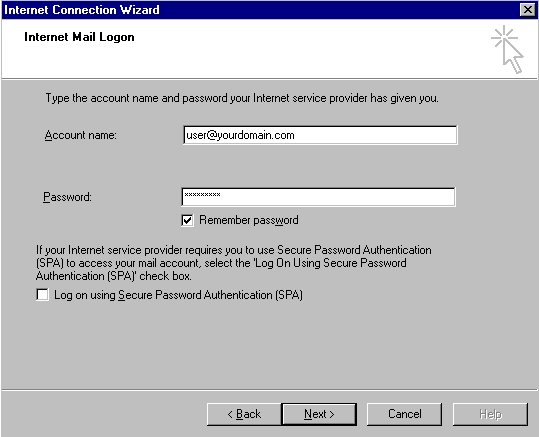
Next you will enter your Account name and Password as show above.
Click Next. The Choose Connection Type window will appear as shown below.
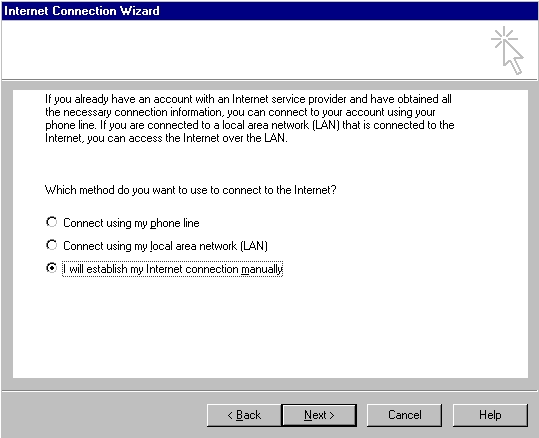
Choose one of the following connection types:
If you connect to your ISP through your modem, click the Connect using my phone line radio button.
If you connect to your ISP via your office network or cable modem (LAN), click the Connect using my local area network (LAN) radio button.
If you wish to connect to your ISP manually before you open Outlook, choose the I will establish my Internet connection manually radio button.
After selecting your internet connection Click Next
Click Finish.
Click Tools.
Click Accounts.
Click the Mail tab, select your newly created account, click Properties.
Select the Servers tab and check My Server Requires Authentication, click Settings.
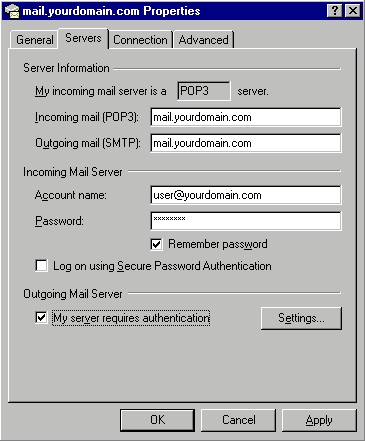
Remember, customers that are using internet providers such as Mindspring, UUnet and Prodigy must use their provider's outgoing mail server. There may be other ISP's that require users to use their local SMTP servers as well. Please contact them for more information.
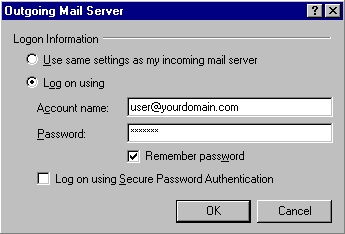
Do not check "log on using Secure Password Authentication"
If you want to add another e-mail account to Outlook, repeat the above procedure. If not, click Close.